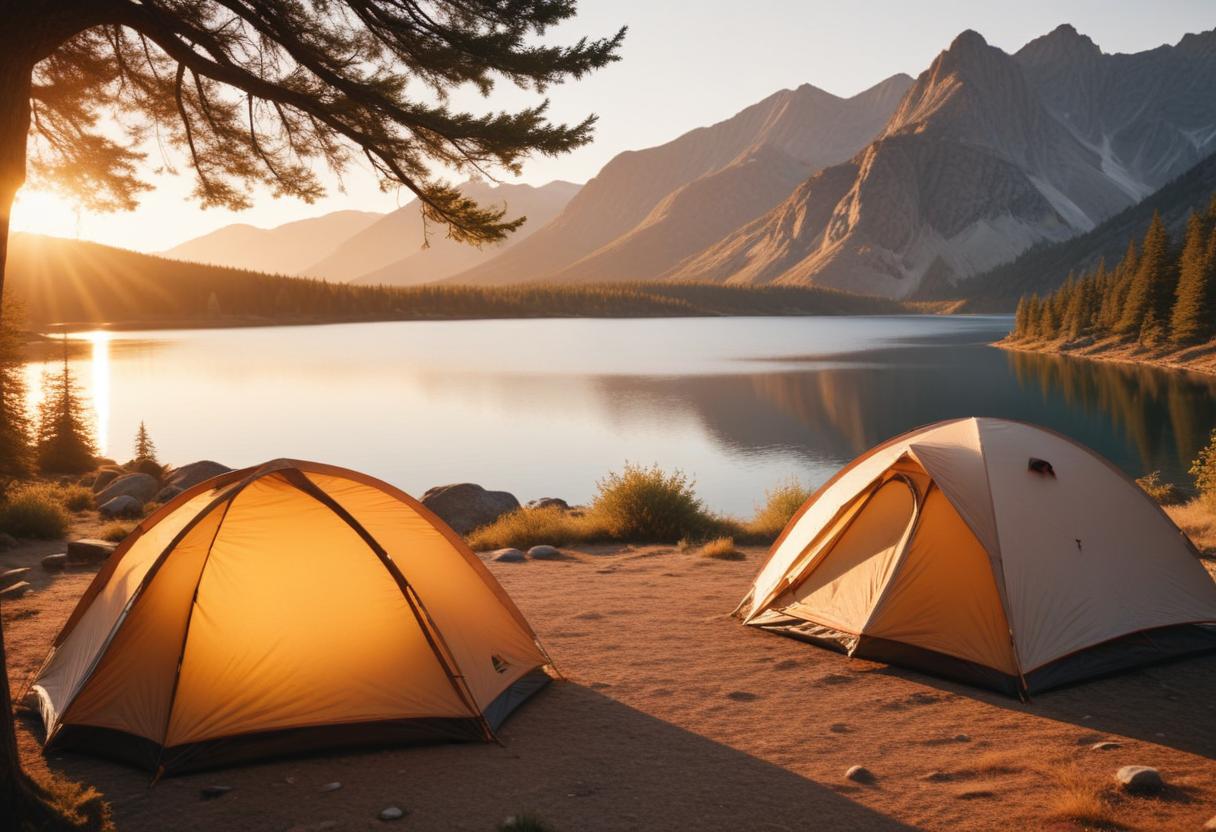
How to Plan the Perfect Camping Trip: A Comprehensive Guide
Planning a camping trip can be as exciting as the adventure itself. Whether you're a seasoned outdoor enthusiast or a first-time camper, proper planning is key to ensuring a memorable and enjoyable experience. This guide will walk you through the essential steps to plan the perfect camping trip.
1. Choose Your Destination
The first step in planning your perfect camping trip is selecting the right destination. Consider factors such as:
- Distance from home
- Type of camping experience you want (e.g., primitive, RV, glamping)
- Scenery and natural attractions
- Available activities (hiking, fishing, swimming, etc.)
- Climate and weather conditions
Research potential campsites online, read reviews, and don't hesitate to call park rangers for insider tips.
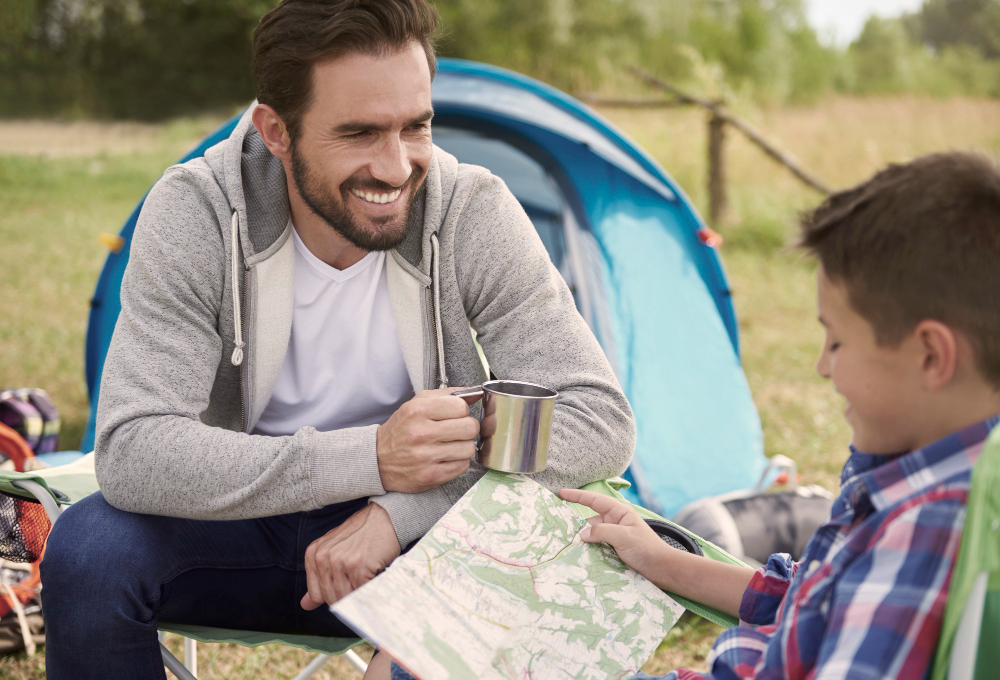
Careful selection of your campsite can make or break your camping experience
2. Plan Your Timing
Timing is crucial for a successful camping trip. Consider:
- Season: Each has its charms and challenges
- Length of stay: Weekend getaway or extended adventure?
- Booking windows: Popular sites may require reservations months in advance
- Local events or festivals that might enhance (or hinder) your experience
3. Gear Up
Having the right gear is essential for comfort and safety. Create a comprehensive packing list including:
- Shelter: Tent, tarp, or hammock system
- Sleeping gear: Sleeping bags, pads, and pillows
- Clothing: Appropriate for the weather and activities
- Cooking equipment: Stove, fuel, cookware, and utensils
- Water: Storage containers and purification method
- Navigation: Maps, compass, or GPS device
- First-aid kit and emergency supplies
Not sure what gear you need? Check out our detailed guide on Essential Camping Gear for Beginners to ensure you're well-equipped for your adventure.
You can also use our Camping Gear Trip Planner to make sure you have packed everything!
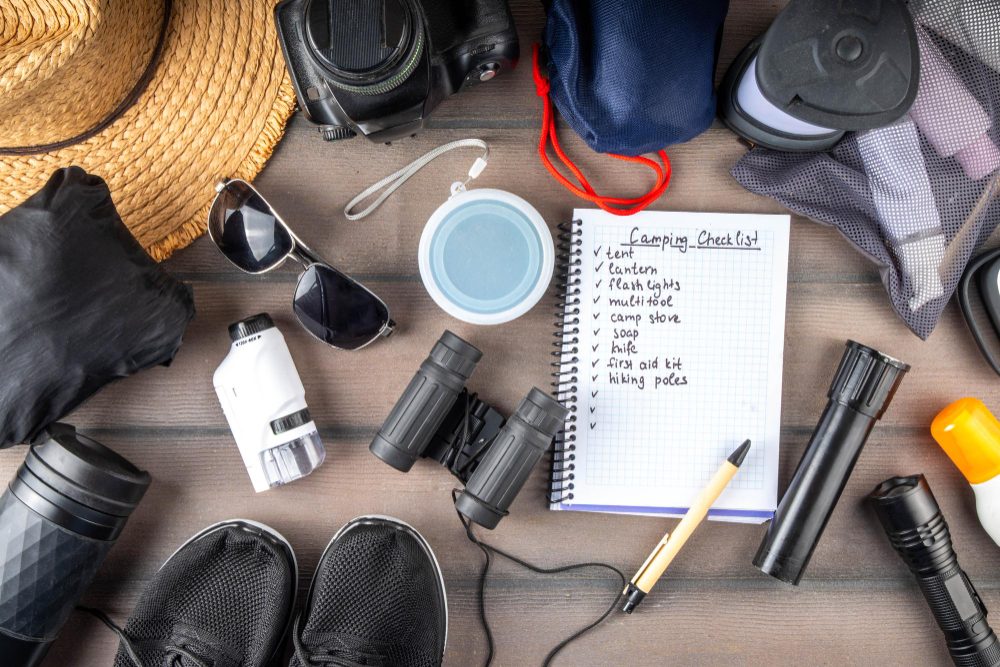
A well-prepared gear checklist ensures you don't forget any essentials
4. Plan Your Meals
Good food can elevate your camping experience. When meal planning:
- Plan each meal and create a grocery list
- Opt for non-perishable items and foods that are easy to prepare
- Pre-prepare meals when possible to save time at camp
- Don't forget snacks and plenty of water
- Consider any dietary restrictions in your group
5. Prepare for Activities
Research and plan activities to make the most of your surroundings:
- Hiking: Research trails suitable for your group's skill level
- Water activities: Bring necessary gear for swimming, fishing, or boating
- Wildlife watching: Pack binoculars and field guides
- Stargazing: Consider bringing a telescope or star chart
- Rainy day activities: Pack books, games, or cards
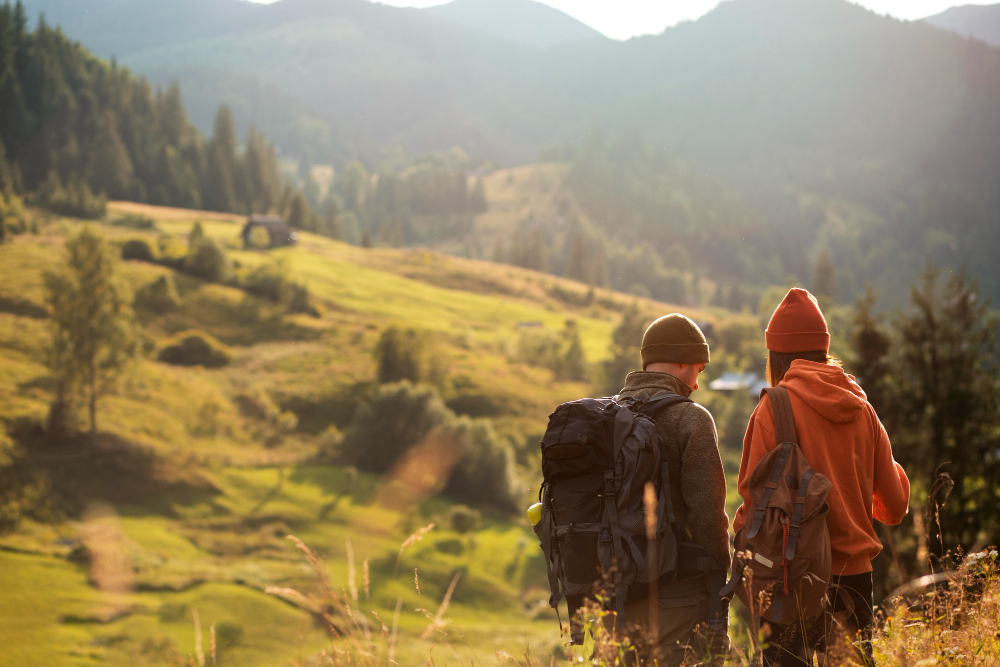
Planning diverse activities ensures an exciting and memorable camping experience
6. Safety First
Prioritize safety in your planning:
- Inform someone of your plans and expected return
- Research potential hazards (wildlife, weather, terrain)
- Bring a well-stocked first-aid kit
- Know basic first aid and wilderness survival skills
- Carry emergency communication devices (satellite phone or personal locator beacon for remote areas)
7. Practice Leave No Trace Principles
Responsible camping helps preserve nature for future generations:
- Plan ahead and prepare to minimize waste
- Travel and camp on durable surfaces
- Dispose of waste properly
- Leave what you find
- Minimize campfire impacts
- Respect wildlife
- Be considerate of other visitors
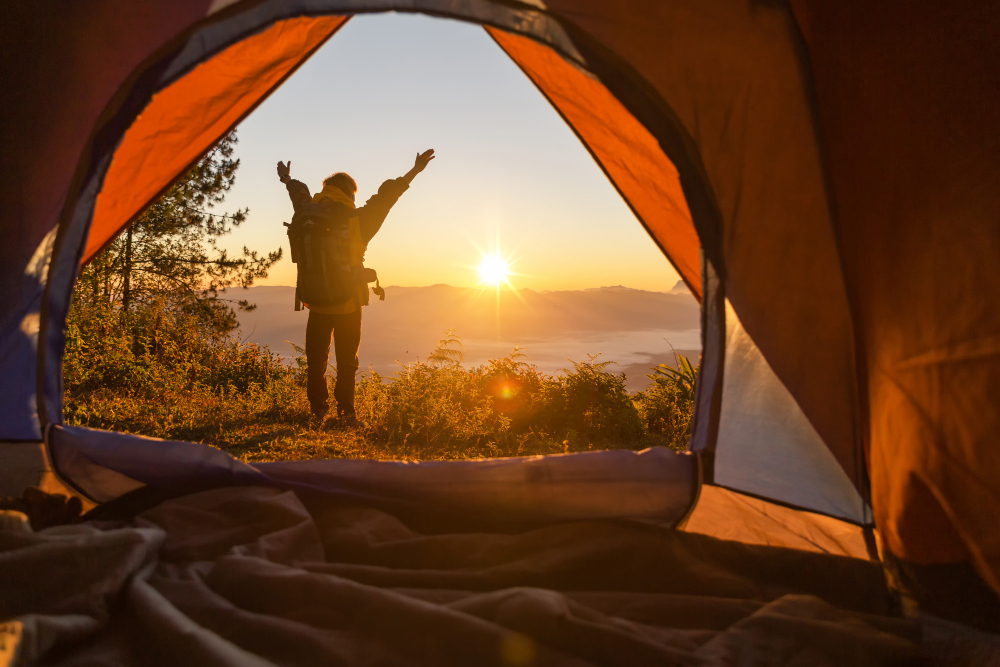
Practicing Leave No Trace principles helps preserve the natural beauty for future campers
Conclusion: Embrace the Adventure
Planning the perfect camping trip involves careful consideration of many factors, but the reward is an unforgettable outdoor adventure. Remember, part of the joy of camping is embracing the unexpected, so while thorough planning is important, leave room for spontaneity and discovery.
With this guide, you're well on your way to planning a camping trip that will create lasting memories. So pack your bags, hit the trail, and immerse yourself in the beauty of nature. Happy camping!